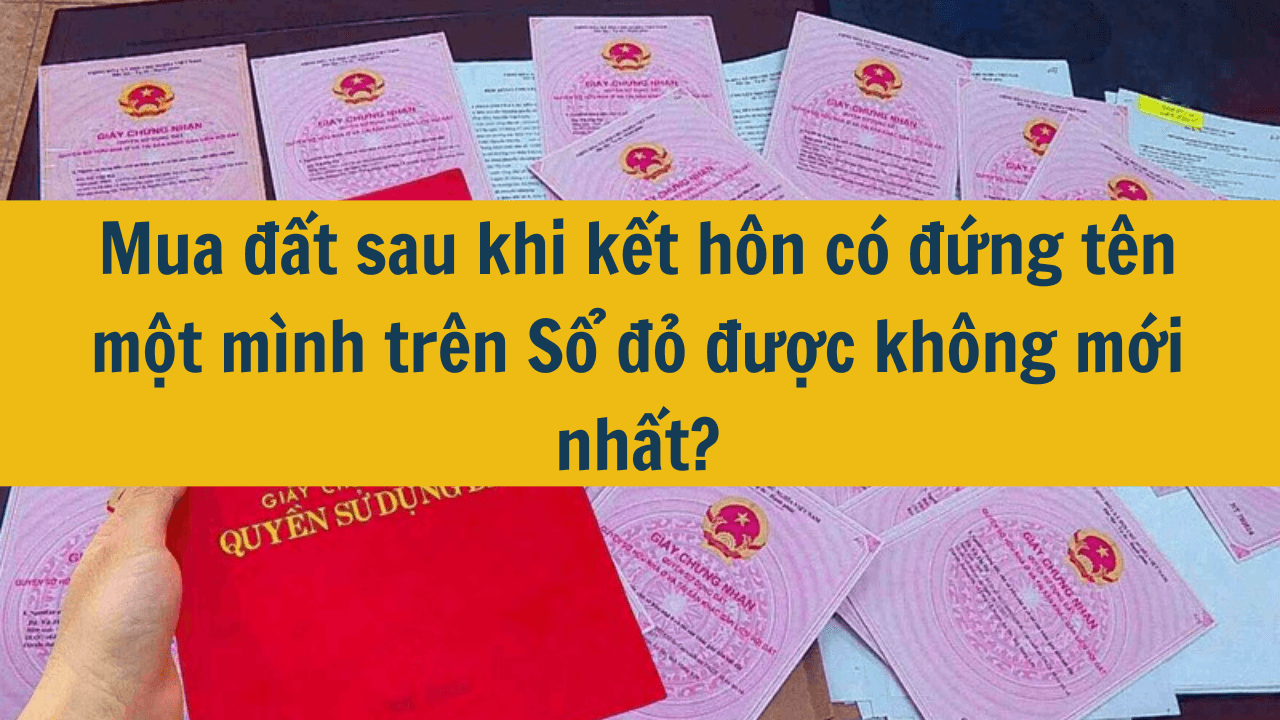 Tìm kiếm
Tìm kiếm
Chương III Luật Hôn nhân và gia đình 2014: Quan hệ giữa vợ và chồng
| Số hiệu: | 52/2014/QH13 | Loại văn bản: | Luật |
| Nơi ban hành: | Quốc hội | Người ký: | Nguyễn Sinh Hùng |
| Ngày ban hành: | 19/06/2014 | Ngày hiệu lực: | 01/01/2015 |
| Ngày công báo: | 16/07/2014 | Số công báo: | Từ số 681 đến số 682 |
| Lĩnh vực: | Quyền dân sự, Văn hóa - Xã hội | Tình trạng: | Còn hiệu lực |
TÓM TẮT VĂN BẢN
Điểm mới nổi bật của Luật hôn nhân gia đình 2014
Luật hôn nhân gia đình 2014 đã chính thức được thông qua và sẽ có hiệu lực kể từ 01/01/2015. Về cơ bản Luật này có ba điểm mới quan trọng:
Thứ nhất, nâng độ tuổi kết hôn của nữ thành đủ 18 tuổi (thay vì đủ 17 tuổi trở lên như trước). Như vậy tuổi kết hôn sẽ là từ đủ 18 tuổi trở lên đối với nữ và từ đủ 20 tuổi trở lên đối với nam.
Thứ hai, cho phép mang thai hộ vì mục đích nhân đạo. Việc mang thai hộ chỉ được áp dụng khi có đầy đủ các điều kiện về cả người nhờ mang thai hộ và người mang thai hộ. Đặc biệt là người mang thai hộ phải là người thân thích cùng hàng của bên vợ hoặc bên chồng nhờ mang thai hộ.
Thứ ba, quy định chế độ tài sản của vợ chồng theo thỏa thuận. Việc thỏa thuận phải được lập bằng văn bản có công chứng hoặc chứng thực trước khi kết hôn. Thỏa thuận này vẫn có thể được thay đổi sau khi kết hôn.
Ngoài nội dung trên, Luật hôn nhân gia đình 2014 cũng quy định thêm một số vấn đề:
- Áp dụng tập quán tốt đẹp về hôn nhân và gia đình: chỉ được áp dụng tập quán trong trường hợp pháp luật không có quy định và các bên không có thỏa thuận nhưng không được trái với các nguyên tắc, vi phạm các điều cấm tại Luật này.
- Tiếp tục không thừa nhận hôn nhân đồng tính.
- Quy định cụ thể cách giải quyết về con, tài sản, nghĩa vụ và hợp đồng các bên khi nam nữ chung sống như vợ chồng mà không đăng ký kết hôn. Không tính thời gian chung sống như vợ chồng trước khi đăng ký kết hôn vào thời kỳ hôn nhân.
- Quy định về con do người vợ mang thai trong thời kỳ hôn nhân cũng được luật hóa. Con được sinh ra trong thời hạn 300 ngày kể từ thời điểm chấm dứt hôn nhân được coi là con do người vợ mang thai trong thời kỳ hôn nhân.
Nếu cha, mẹ không thừa nhận con thì phải có chứng cứ và phải được Toà án xác định. (Điều này đã được ghi nhận tại Nghị định 70/2001/NĐ-CP).
Văn bản tiếng việt
Văn bản tiếng anh
Vợ, chồng bình đẳng với nhau, có quyền, nghĩa vụ ngang nhau về mọi mặt trong gia đình, trong việc thực hiện các quyền, nghĩa vụ của công dân được quy định trong Hiến pháp, Luật này và các luật khác có liên quan.
Quyền, nghĩa vụ về nhân thân của vợ, chồng quy định tại Luật này, Bộ luật dân sự và các luật khác có liên quan được tôn trọng và bảo vệ.
1. Vợ chồng có nghĩa vụ thương yêu, chung thủy, tôn trọng, quan tâm, chăm sóc, giúp đỡ nhau; cùng nhau chia sẻ, thực hiện các công việc trong gia đình.
2. Vợ chồng có nghĩa vụ sống chung với nhau, trừ trường hợp vợ chồng có thỏa thuận khác hoặc do yêu cầu của nghề nghiệp, công tác, học tập, tham gia các hoạt động chính trị, kinh tế, văn hóa, xã hội và lý do chính đáng khác.
Việc lựa chọn nơi cư trú của vợ chồng do vợ chồng thỏa thuận, không bị ràng buộc bởi phong tục, tập quán, địa giới hành chính.
Vợ, chồng có nghĩa vụ tôn trọng, giữ gìn và bảo vệ danh dự, nhân phẩm, uy tín cho nhau.
Vợ, chồng có nghĩa vụ tôn trọng quyền tự do tín ngưỡng, tôn giáo của nhau.
Vợ, chồng có quyền, nghĩa vụ tạo điều kiện, giúp đỡ nhau chọn nghề nghiệp; học tập, nâng cao trình độ văn hóa, chuyên môn, nghiệp vụ; tham gia hoạt động chính trị, kinh tế, văn hóa, xã hội.
1. Việc đại diện giữa vợ và chồng trong xác lập, thực hiện, chấm dứt giao dịch được xác định theo quy định của Luật này, Bộ luật dân sự và các luật khác có liên quan.
2. Vợ, chồng có thể ủy quyền cho nhau xác lập, thực hiện và chấm dứt giao dịch mà theo quy định của Luật này, Bộ luật dân sự và các luật khác có liên quan phải có sự đồng ý của cả hai vợ chồng.
3. Vợ, chồng đại diện cho nhau khi một bên mất năng lực hành vi dân sự mà bên kia có đủ điều kiện làm người giám hộ hoặc khi một bên bị hạn chế năng lực hành vi dân sự mà bên kia được Tòa án chỉ định làm người đại diện theo pháp luật cho người đó, trừ trường hợp theo quy định của pháp luật thì người đó phải tự mình thực hiện quyền, nghĩa vụ có liên quan.
Trong trường hợp một bên vợ, chồng mất năng lực hành vi dân sự mà bên kia có yêu cầu Tòa án giải quyết ly hôn thì căn cứ vào quy định về giám hộ trong Bộ luật dân sự, Tòa án chỉ định người khác đại diện cho người bị mất năng lực hành vi dân sự để giải quyết việc ly hôn.
1. Trong trường hợp vợ, chồng kinh doanh chung thì vợ, chồng trực tiếp tham gia quan hệ kinh doanh là người đại diện hợp pháp của nhau trong quan hệ kinh doanh đó, trừ trường hợp trước khi tham gia quan hệ kinh doanh, vợ chồng có thỏa thuận khác hoặc Luật này và các luật liên quan có quy định khác.
2. Trong trường hợp vợ, chồng đưa tài sản chung vào kinh doanh thì áp dụng quy định tại Điều 36 của Luật này.
1. Việc đại diện giữa vợ và chồng trong việc xác lập, thực hiện và chấm dứt giao dịch liên quan đến tài sản chung có giấy chứng nhận quyền sở hữu, giấy chứng nhận quyền sử dụng tài sản chỉ ghi tên vợ hoặc chồng được thực hiện theo quy định tại Điều 24 và Điều 25 của Luật này.
2. Trong trường hợp vợ hoặc chồng có tên trên giấy chứng nhận quyền sở hữu, giấy chứng nhận quyền sử dụng tài sản tự mình xác lập, thực hiện và chấm dứt giao dịch với người thứ ba trái với quy định về đại diện giữa vợ và chồng của Luật này thì giao dịch đó vô hiệu, trừ trường hợp theo quy định của pháp luật mà người thứ ba ngay tình được bảo vệ quyền lợi.
1. Vợ chồng có quyền lựa chọn áp dụng chế độ tài sản theo luật định hoặc chế độ tài sản theo thỏa thuận.
Chế độ tài sản của vợ chồng theo luật định được thực hiện theo quy định tại các điều từ Điều 33 đến Điều 46 và từ Điều 59 đến Điều 64 của Luật này.
Chế độ tài sản của vợ chồng theo thỏa thuận được thực hiện theo quy định tại các Điều 47, 48, 49, 50 và 59 của Luật này.
2. Các quy định tại các Điều 29, 30, 31 và 32 của Luật này được áp dụng không phụ thuộc vào chế độ tài sản mà vợ chồng đã lựa chọn.
3. Chính phủ quy định chi tiết về chế độ tài sản của vợ chồng.
1. Vợ, chồng bình đẳng với nhau về quyền, nghĩa vụ trong việc tạo lập, chiếm hữu, sử dụng, định đoạt tài sản chung; không phân biệt giữa lao động trong gia đình và lao động có thu nhập.
2. Vợ, chồng có nghĩa vụ bảo đảm điều kiện để đáp ứng nhu cầu thiết yếu của gia đình.
3. Việc thực hiện quyền, nghĩa vụ về tài sản của vợ chồng mà xâm phạm đến quyền, lợi ích hợp pháp của vợ, chồng, gia đình và của người khác thì phải bồi thường.
1. Vợ, chồng có quyền, nghĩa vụ thực hiện giao dịch nhằm đáp ứng nhu cầu thiết yếu của gia đình.
2. Trong trường hợp vợ chồng không có tài sản chung hoặc tài sản chung không đủ để đáp ứng nhu cầu thiết yếu của gia đình thì vợ, chồng có nghĩa vụ đóng góp tài sản riêng theo khả năng kinh tế của mỗi bên.
Việc xác lập, thực hiện, chấm dứt các giao dịch liên quan đến nhà là nơi ở duy nhất của vợ chồng phải có sự thỏa thuận của vợ chồng. Trong trường hợp nhà ở thuộc sở hữu riêng của vợ hoặc chồng thì chủ sở hữu có quyền xác lập, thực hiện, chấm dứt giao dịch liên quan đến tài sản đó nhưng phải bảo đảm chỗ ở cho vợ chồng.
1. Trong giao dịch với người thứ ba ngay tình thì vợ, chồng là người đứng tên tài khoản ngân hàng, tài khoản chứng khoán được coi là người có quyền xác lập, thực hiện giao dịch liên quan đến tài sản đó.
2. Trong giao dịch với người thứ ba ngay tình thì vợ, chồng đang chiếm hữu động sản mà theo quy định của pháp luật không phải đăng ký quyền sở hữu được coi là người có quyền xác lập, thực hiện giao dịch liên quan đến tài sản đó trong trường hợp Bộ luật dân sự có quy định về việc bảo vệ người thứ ba ngay tình.
1. Tài sản chung của vợ chồng gồm tài sản do vợ, chồng tạo ra, thu nhập do lao động, hoạt động sản xuất, kinh doanh, hoa lợi, lợi tức phát sinh từ tài sản riêng và thu nhập hợp pháp khác trong thời kỳ hôn nhân, trừ trường hợp được quy định tại khoản 1 Điều 40 của Luật này; tài sản mà vợ chồng được thừa kế chung hoặc được tặng cho chung và tài sản khác mà vợ chồng thỏa thuận là tài sản chung.
Quyền sử dụng đất mà vợ, chồng có được sau khi kết hôn là tài sản chung của vợ chồng, trừ trường hợp vợ hoặc chồng được thừa kế riêng, được tặng cho riêng hoặc có được thông qua giao dịch bằng tài sản riêng.
2. Tài sản chung của vợ chồng thuộc sở hữu chung hợp nhất, được dùng để bảo đảm nhu cầu của gia đình, thực hiện nghĩa vụ chung của vợ chồng.
3. Trong trường hợp không có căn cứ để chứng minh tài sản mà vợ, chồng đang có tranh chấp là tài sản riêng của mỗi bên thì tài sản đó được coi là tài sản chung.
1. Trong trường hợp tài sản thuộc sở hữu chung của vợ chồng mà pháp luật quy định phải đăng ký quyền sở hữu, quyền sử dụng thì giấy chứng nhận quyền sở hữu, giấy chứng nhận quyền sử dụng phải ghi tên cả hai vợ chồng, trừ trường hợp vợ chồng có thỏa thuận khác.
2. Trong trường hợp giấy chứng nhận quyền sở hữu, giấy chứng nhận quyền sử dụng tài sản chỉ ghi tên một bên vợ hoặc chồng thì giao dịch liên quan đến tài sản này được thực hiện theo quy định tại Điều 26 của Luật này; nếu có tranh chấp về tài sản đó thì được giải quyết theo quy định tại khoản 3 Điều 33 của Luật này.
1. Việc chiếm hữu, sử dụng, định đoạt tài sản chung do vợ chồng thỏa thuận.
2. Việc định đoạt tài sản chung phải có sự thỏa thuận bằng văn bản của vợ chồng trong những trường hợp sau đây:
a) Bất động sản;
b) Động sản mà theo quy định của pháp luật phải đăng ký quyền sở hữu;
c) Tài sản đang là nguồn tạo ra thu nhập chủ yếu của gia đình.
Trong trường hợp vợ chồng có thỏa thuận về việc một bên đưa tài sản chung vào kinh doanh thì người này có quyền tự mình thực hiện giao dịch liên quan đến tài sản chung đó. Thỏa thuận này phải lập thành văn bản.
Vợ chồng có các nghĩa vụ chung về tài sản sau đây:
1. Nghĩa vụ phát sinh từ giao dịch do vợ chồng cùng thỏa thuận xác lập, nghĩa vụ bồi thường thiệt hại mà theo quy định của pháp luật vợ chồng cùng phải chịu trách nhiệm;
2. Nghĩa vụ do vợ hoặc chồng thực hiện nhằm đáp ứng nhu cầu thiết yếu của gia đình;
3. Nghĩa vụ phát sinh từ việc chiếm hữu, sử dụng, định đoạt tài sản chung;
4. Nghĩa vụ phát sinh từ việc sử dụng tài sản riêng để duy trì, phát triển khối tài sản chung hoặc để tạo ra nguồn thu nhập chủ yếu của gia đình;
5. Nghĩa vụ bồi thường thiệt hại do con gây ra mà theo quy định của Bộ luật dân sự thì cha mẹ phải bồi thường;
6. Nghĩa vụ khác theo quy định của các luật có liên quan.
1. Trong thời kỳ hôn nhân, vợ chồng có quyền thỏa thuận chia một phần hoặc toàn bộ tài sản chung, trừ trường hợp quy định tại Điều 42 của Luật này; nếu không thỏa thuận được thì có quyền yêu cầu Tòa án giải quyết.
2. Thỏa thuận về việc chia tài sản chung phải lập thành văn bản. Văn bản này được công chứng theo yêu cầu của vợ chồng hoặc theo quy định của pháp luật.
3. Trong trường hợp vợ, chồng có yêu cầu thì Tòa án giải quyết việc chia tài sản chung của vợ chồng theo quy định tại Điều 59 của Luật này.
1. Thời điểm có hiệu lực của việc chia tài sản chung của vợ chồng là thời điểm do vợ chồng thỏa thuận và được ghi trong văn bản; nếu trong văn bản không xác định thời điểm có hiệu lực thì thời điểm có hiệu lực được tính từ ngày lập văn bản.
2. Trong trường hợp tài sản được chia mà theo quy định của pháp luật, giao dịch liên quan đến tài sản đó phải tuân theo hình thức nhất định thì việc chia tài sản chung của vợ chồng có hiệu lực từ thời điểm việc thỏa thuận tuân thủ hình thức mà pháp luật quy định.
3. Trong trường hợp Tòa án chia tài sản chung của vợ chồng thì việc chia tài sản chung có hiệu lực kể từ ngày bản án, quyết định của Tòa án có hiệu lực pháp luật.
4. Quyền, nghĩa vụ về tài sản giữa vợ, chồng với người thứ ba phát sinh trước thời điểm việc chia tài sản chung có hiệu lực vẫn có giá trị pháp lý, trừ trường hợp các bên có thỏa thuận khác.
1. Trong trường hợp chia tài sản chung của vợ chồng thì phần tài sản được chia, hoa lợi, lợi tức phát sinh từ tài sản riêng của mỗi bên sau khi chia tài sản chung là tài sản riêng của vợ, chồng, trừ trường hợp vợ chồng có thỏa thuận khác. Phần tài sản còn lại không chia vẫn là tài sản chung của vợ chồng.
2. Thỏa thuận của vợ chồng quy định tại khoản 1 Điều này không làm thay đổi quyền, nghĩa vụ về tài sản được xác lập trước đó giữa vợ, chồng với người thứ ba.
1. Sau khi chia tài sản chung trong thời kỳ hôn nhân, vợ chồng có quyền thỏa thuận chấm dứt hiệu lực của việc chia tài sản chung. Hình thức của thỏa thuận được thực hiện theo quy định tại khoản 2 Điều 38 của Luật này.
2. Kể từ ngày thỏa thuận của vợ chồng quy định tại khoản 1 Điều này có hiệu lực thì việc xác định tài sản chung, tài sản riêng của vợ chồng được thực hiện theo quy định tại Điều 33 và Điều 43 của Luật này. Phần tài sản mà vợ, chồng đã được chia vẫn thuộc sở hữu riêng của vợ, chồng, trừ trường hợp vợ chồng có thỏa thuận khác.
3. Quyền, nghĩa vụ về tài sản phát sinh trước thời điểm chấm dứt hiệu lực của việc chia tài sản chung vẫn có hiệu lực, trừ trường hợp các bên có thỏa thuận khác.
4. Trong trường hợp việc chia tài sản chung trong thời kỳ hôn nhân được thực hiện theo bản án, quyết định có hiệu lực của Tòa án thì thỏa thuận chấm dứt hiệu lực của việc chia tài sản chung phải được Tòa án công nhận.
Việc chia tài sản chung trong thời kỳ hôn nhân bị vô hiệu khi thuộc một trong các trường hợp sau đây:
1. Ảnh hưởng nghiêm trọng đến lợi ích của gia đình; quyền, lợi ích hợp pháp của con chưa thành niên, con đã thành niên mất năng lực hành vi dân sự hoặc không có khả năng lao động và không có tài sản để tự nuôi mình;
2. Nhằm trốn tránh thực hiện các nghĩa vụ sau đây:
a) Nghĩa vụ nuôi dưỡng, cấp dưỡng;
b) Nghĩa vụ bồi thường thiệt hại;
c) Nghĩa vụ thanh toán khi bị Tòa án tuyên bố phá sản;
d) Nghĩa vụ trả nợ cho cá nhân, tổ chức;
đ) Nghĩa vụ nộp thuế hoặc nghĩa vụ tài chính khác đối với Nhà nước;
e) Nghĩa vụ khác về tài sản theo quy định của Luật này, Bộ luật dân sự và quy định khác của pháp luật có liên quan.
1. Tài sản riêng của vợ, chồng gồm tài sản mà mỗi người có trước khi kết hôn; tài sản được thừa kế riêng, được tặng cho riêng trong thời kỳ hôn nhân; tài sản được chia riêng cho vợ, chồng theo quy định tại các điều 38, 39 và 40 của Luật này; tài sản phục vụ nhu cầu thiết yếu của vợ, chồng và tài sản khác mà theo quy định của pháp luật thuộc sở hữu riêng của vợ, chồng.
2. Tài sản được hình thành từ tài sản riêng của vợ, chồng cũng là tài sản riêng của vợ, chồng. Hoa lợi, lợi tức phát sinh từ tài sản riêng trong thời kỳ hôn nhân được thực hiện theo quy định tại khoản 1 Điều 33 và khoản 1 Điều 40 của Luật này.
1. Vợ, chồng có quyền chiếm hữu, sử dụng, định đoạt tài sản riêng của mình; nhập hoặc không nhập tài sản riêng vào tài sản chung.
2. Trong trường hợp vợ hoặc chồng không thể tự mình quản lý tài sản riêng và cũng không ủy quyền cho người khác quản lý thì bên kia có quyền quản lý tài sản đó. Việc quản lý tài sản phải bảo đảm lợi ích của người có tài sản.
3. Nghĩa vụ riêng về tài sản của mỗi người được thanh toán từ tài sản riêng của người đó.
4. Trong trường hợp vợ, chồng có tài sản riêng mà hoa lợi, lợi tức từ tài sản riêng đó là nguồn sống duy nhất của gia đình thì việc định đoạt tài sản này phải có sự đồng ý của chồng, vợ.
Vợ, chồng có các nghĩa vụ riêng về tài sản sau đây:
1. Nghĩa vụ của mỗi bên vợ, chồng có trước khi kết hôn;
2. Nghĩa vụ phát sinh từ việc chiếm hữu, sử dụng, định đoạt tài sản riêng, trừ trường hợp nghĩa vụ phát sinh trong việc bảo quản, duy trì, tu sửa tài sản riêng của vợ, chồng theo quy định tại khoản 4 Điều 44 hoặc quy định tại khoản 4 Điều 37 của Luật này;
3. Nghĩa vụ phát sinh từ giao dịch do một bên xác lập, thực hiện không vì nhu cầu của gia đình;
4. Nghĩa vụ phát sinh từ hành vi vi phạm pháp luật của vợ, chồng.
1. Việc nhập tài sản riêng của vợ, chồng vào tài sản chung được thực hiện theo thỏa thuận của vợ chồng.
2. Tài sản được nhập vào tài sản chung mà theo quy định của pháp luật, giao dịch liên quan đến tài sản đó phải tuân theo hình thức nhất định thì thỏa thuận phải bảo đảm hình thức đó.
3. Nghĩa vụ liên quan đến tài sản riêng đã nhập vào tài sản chung được thực hiện bằng tài sản chung, trừ trường hợp vợ chồng có thỏa thuận khác hoặc pháp luật có quy định khác.
Trong trường hợp hai bên kết hôn lựa chọn chế độ tài sản theo thỏa thuận thì thỏa thuận này phải được lập trước khi kết hôn, bằng hình thức văn bản có công chứng hoặc chứng thực. Chế độ tài sản của vợ chồng theo thỏa thuận được xác lập kể từ ngày đăng ký kết hôn.
1. Nội dung cơ bản của thỏa thuận về chế độ tài sản bao gồm:
a) Tài sản được xác định là tài sản chung, tài sản riêng của vợ, chồng;
b) Quyền, nghĩa vụ của vợ chồng đối với tài sản chung, tài sản riêng và giao dịch có liên quan; tài sản để bảo đảm nhu cầu thiết yếu của gia đình;
c) Điều kiện, thủ tục và nguyên tắc phân chia tài sản khi chấm dứt chế độ tài sản;
d) Nội dung khác có liên quan.
2. Khi thực hiện chế độ tài sản theo thỏa thuận mà phát sinh những vấn đề chưa được vợ chồng thỏa thuận hoặc thỏa thuận không rõ ràng thì áp dụng quy định tại các Điều 29, 30, 31 và 32 của Luật này và quy định tương ứng của chế độ tài sản theo luật định.
1. Thỏa thuận về chế độ tài sản của vợ chồng bị Tòa án tuyên bố vô hiệu khi thuộc một trong các trường hợp sau đây:
a) Không tuân thủ điều kiện có hiệu lực của giao dịch được quy định tại Bộ luật dân sự và các luật khác có liên quan;
b) Vi phạm một trong các quy định tại các điều 29, 30, 31 và 32 của Luật này;
c) Nội dung của thỏa thuận vi phạm nghiêm trọng quyền được cấp dưỡng, quyền được thừa kế và quyền, lợi ích hợp pháp khác của cha, mẹ, con và thành viên khác của gia đình.
2. Tòa án nhân dân tối cao chủ trì phối hợp với Viện kiểm sát nhân dân tối cao và Bộ Tư pháp hướng dẫn khoản 1 Điều này.
RELATIONSHIP BETWEEN HUSBAND AND WIFE
Section 1. PERSONAL RIGHTS AND OBLIGATIONS
Article 17. Equality in rights and obligations between husband and wife
Husband and wife are equal, having equal rights and obligations in all family affairs and in the performance of citizens’ rights and obligations prescribed in the Constitution, this Law and relevant laws.
Article 18. Protection of personal rights and obligations of husband and wife
Personal rights and obligations of husband and wife prescribed in this Law, the Civil Code and other relevant laws shall be respected and protected.
Article 19. Husband and wife attachment
1. Husband and wife have the obligations to love, be faithful to, respect, attend to, care for, and help each other and share family work.
2. Unless otherwise agreed by them or due to requirements of their occupations, work or study, or participation in political, economic, cultural or social activities or for another plausible reason, husband and wife have the obligation to live together.
Article 20. Selection of domicile of husband and wife
The domicile of husband and wife shall be selected as agreed by themselves without being bound by customs, practices or administrative boundaries.
Article 21. Respect for honor, dignity and prestige of husband and wife
Husband and wife have the obligation to respect, preserve and protect each other’s honor, dignity and prestige.
Article 22. Respect for the right to freedom of belief and religion of husband and wife
Husband and wife have the obligation to respect each other’s right to freedom of belief and religion.
Article 23. Rights and obligations to study, work and take part in political, economic, cultural and social activities
Husband and wife have the right and obligation to create conditions for each other to select professions; study and raise their educational levels and professional qualifications and skills; and take part in political, economic, cultural and social activities.
Section 2. REPRESENTATION BETWEEN HUSBAND AND WIFE
Article 24. Bases for determination of representation between husband and wife
1. The representation between husband and wife in establishing, making and terminating transactions shall be determined in accordance with this Law, the Civil Code and other relevant laws.
2. Husband and wife may authorize each other to establish, make or terminate transactions which, as prescribed by this Law, the Civil Code and other relevant laws, shall be agreed upon by both spouses.
3. A spouse may represent the other when the latter loses his/her civil act capacity while the former is eligible to act as the guardian or when the latter has his/her civil act capacity restricted while the former is designated by a court to act as the at-law representative of his her spouse, unless the latter is required by law to perform by himself/herself related rights and obligations.
When a spouse loses his/her civil act capacity and the other requests a court to settle divorce, the court shall designate another person to represent the partner who has lost his/her civil act capacity for settlement of divorce in accordance with the Civil Code’s provisions on guardianship.
Article 25. Representation between husband and wife in business relations
1. When husband and wife jointly run a business, unless otherwise agreed by the husband and wife before taking part in the business relation or otherwise prescribed by this Law and other relevant laws, the spouse directly involved in the business relation is the lawful representative of the other in that relation.
2. In case husband and wife put their common property into business activities, Article of this Law shall apply.
Article 26. Representation between husband and wife in case only one spouse is named in the ownership or use right certificate of common property
1. Representation between husband and wife in establishing, making and terminating transactions related to their common property with ownership or use right certificates on which only one spouse is named must comply with Articles 24 and 25 of this Law.
2. In case the spouse named in the property ownership or use right certificate establishes, makes and terminates on his/her own a transaction with a third party in contravention of this Law’s provisions on representation between husband and wife, that transaction is invalid, unless the interests of the third party in good faith are protected as prescribed by law.
Article 27. Joint liability of husband and wife
1. Husband and wife shall take joint liability for transactions prescribed in Clause 1, Article 30, which are made by either of them, or other transactions made in conformity with provisions on representation of Articles 24, 25 and 26, of this Law.
2. Husband and wife shall take joint liability for the obligations prescribed in Article of this Law.
Section 3. MATRIMONIAL PROPERTY REGIME
Article 28. Application of the matrimonial property regime
1. Husband and wife have the right to choose to apply the statutory or agreed property regime.
The statutory matrimonial property regime is prescribed in Articles 33 thru 46 and Articles 59 thru 64 of this Law.
The agreed matrimonial property regime must comply with Articles 47, 48, 49, 50 and 59 of this Law.
2. Articles 29, 30, 31 and 32 of this Law shall apply regardless of the property regime chosen by husband and wife.
3. The Government shall stipulate in detail the matrimonial property regime.
Article 29. General principles of the matrimonial property regime
1. Husband and wife have equal rights and obligations in the creation, possession, use and disposition of their common property without discrimination between housework labor and income-generating labor.
2. Husband and wife have the obligation to ensure conditions for meeting their family’s essential needs.
3. When the performance of property rights and obligations of husband and wife infringes upon lawful rights and interests of the wife, husband, their family or other persons, compensation shall be paid.
Article 30. Rights and obligations of husband and wife to meet their family’s essential needs
1. Husband and wife have the right and obligation to make transactions to meet their family’s essential needs.
2. When husband and wife have no common property or their common property is not enough to meet their family’s essential needs, they shall contribute their separate property according to their financial capacity.
Article 31. Transactions related to the home being the sole domicile of husband and wife
The establishment, making and termination of transactions related to the home being the sole domicile of husband and wife shall be agreed by both of them. In case the home is under the separate ownership of the husband or wife, the owner has the right to establish, make and terminate transactions related to that property but shall ensure domicile for the couple.
Article 32. Transactions with third parties in good faith related to bank accounts, securities accounts and other movable assets not required by law to be registered for ownership and use
1. In transactions with third parties in good faith, the spouse who is the holder of the bank or securities account shall be regarded as the person having the right to establish and make transactions related to that property.
2. In transactions with third parties in good faith, the spouse who is possessing a movable asset which is not required by law to be registered for ownership shall be regarded as the person having the right to establish and make transactions related to that asset in case the Civil Code prescribes protection of third parties in good faith.
Article 33. Common property of husband and wife
1. Common property of husband and wife includes property created by a spouse, incomes generated from labor, production and business activities, yields and profits arising from separate property and other lawful incomes in the marriage period; except the case prescribed in Clause 1, Article 40 of this Law; property jointly inherited by or given to both, and other property agreed upon by husband and wife as common property.
The land use rights obtained by a spouse after marriage shall be common property of husband and wife, unless they are separately inherited by, or given to a spouse or are obtained through transactions made with separate property.
2. Common property of husband and wife shall be under integrated common ownership and used to meet family needs and perform common obligations of husband and wife.
3. When exists no ground to prove that a property in dispute between husband and wife is his/her separate property, such property shall be regarded as common property.
Article 34. Registration of ownership and use rights for common property
1. For a common property which is required by law to be registered for ownership or use, both spouses shall be named in the ownership or use right certificate, unless otherwise agreed by the couple.
2. In case only one spouse is named in the property ownership or use right certificate, transactions related to such property must comply with Article 26 of this Law. Any dispute related to that property shall be settled under Clause 3, Article 33 of this Law.
Article 35. Possession, use and disposition of common property
1. The possession, use and disposition of common property shall be agreed by husband and wife.
2. The disposition of the following common property shall be agreed in writing by husband and wife:
a/ Real estate;
b/ Movable assets which are required by law to be registered for ownership;
c/ Assets which are the major income-generating source for the family.
Article 36. Common property used for business activities
When husband and wife reach agreement on either spouse’s use of common property for business activities, this spouse has the right to make transactions related to that common property on his/her own. This agreement shall be made in writing.
Article 37. Common property obligations of husband and wife
Husband and wife have the following common property obligations:
1. Obligations arising from transactions established under their agreement, obligations to pay damages under their joint liability as prescribed by law;
2. Obligations performed by a spouse in order to meet the family’s essential needs;
3. Obligations arising from the possession, use and disposition of common property;
4. Obligations arising from the use of separate property for maintaining and developing common property or for generating major incomes for the family;
5. Obligations to pay damages caused by their children as prescribed by the Civil Code;
6. Other obligations as prescribed by relevant laws.
Article 38. Common property division during the marriage period
1. During the marriage period, except the case prescribed in Article 42 of this Law, husband and wife have the right to reach agreement on division of part or whole of common property. If they fail to reach agreement, they have the right to request a court to settle it.
2. An agreement on common property division shall be made in writing. This agreement shall be notarized at the request of husband and wife or as prescribed by law.
3. At the request of a spouse, a court shall settle the common property division according to Article 59 of this Law.
Article 39. Effective time of common property division during the marriage period
1. The effective time of a common property division shall be agreed by husband and wife and stated in the written agreement. If such time is not stated in the written agreement, it is the date of making the agreement.
For divided property whose transactions must be under a certain form as prescribed by law, the common property division takes effect on the time the division agreement complies with the form prescribed by law.
For common property divided by a court, the division takes effect on the legally effective date of the court’s judgment or decision.
Property rights and obligations between husband and wife and a third party which arise before the effective time of common property division remain legally effective, unless otherwise agreed by involved parties.
Article 40. Consequences of common property division during the marriage period
1. When common property of husband and wife is divided, unless otherwise agreed by husband and wife, divided property and yields or profits arising from separate property of each spouse after common property division are separate property of each spouse. The undivided property portion remains common property of husband and wife.
2. The agreement between husband and wife prescribed in Clause 1 of this Article shall not change property rights and obligations previously established between them and a third party.
Article 41. Termination of effect of common property division during the marriage period
1. After common property is divided during the marriage period, husband and wife have the right to agree to terminate the effect of such division. The form of agreement must comply with Clause 2, Article 38 of this Law.
2. From the effective date of the agreement between husband and wife prescribed in Clause 1 of this Article, the determination of common property and separate property of husband and wife must comply with Articles 33 and 43 of this Law. Unless otherwise agreed by husband and wife, the property portion divided to the husband or wife remains his/her separate property.
3. Unless otherwise agreed by the parties, property rights and obligations arising before the termination of the effect of common property division remain effective.
4. In case common property is divided during the marriage period under an effective court judgment or decision, the agreement on termination of the effect of common property division shall be recognized by the court.
Article 42. Invalidated common property division during the marriage period
Common property division during the marriage period shall be invalidated when:
1. It seriously harms the family’s interests; or lawful rights and interests of minor children or adult children who have lost their civil act capacity or have no working capacity and no property to support themselves;
2. It aims to shirk the following obligations:
a/ Raising and support obligations;
b/ Damages payment obligations;
c/ Payment obligations when declared bankrupt by a court;
d/ Debt payment obligations;
dd/ Tax payment obligations or other financial obligations toward the State;
e/ Other property obligations as prescribed by this Law, the Civil Code and other relevant laws.
Article 43. Separate property of husband and wife
1. Separate property of a spouse includes property owned by this person before marriage; property inherited by or given separately to him/her during the marriage period; property divided to him/her under Articles 38,39 and 40 of this Law; property to meet his/her essential needs and other property under his/her ownership as prescribed by law.
2. Property created from separate property of a husband or wife is also property of his/ her own. Yields and profits arising from separate property during the marriage period must comply with Clause 1, Article 33, and Clause 1, Article 40, of this Law.
Article 44. Possession, use and disposition of separate property
1. A spouse has the right to possess, use and dispose of his/her separate property, and to merge or refuse to merge separate property into common property.
2. When a spouse cannot manage his/her separate property himself/herself and does not authorize another person to manage it, the other spouse has the right to manage such property. The property management must ensure benefits for the property owner.
3. Each spouse’s separate property obligations shall be performed with his/her separate property.
4. When yields or profits from separate property of a spouse constitute the family’s sole livelihood, the disposition of such property is subject to the other spouse’s consent.
Article 45. Separate property obligations of husband and wife
A spouse has the following separate property obligations:
1. The obligations he/she has before marriage;
2. The obligations arising from the possession, use and disposition of his/her separate property, other than the obligations arising from the preservation, maintenance and repair of his/her separate property under Clause 4, Article 44 or Clause 4, Article 37 of this Law;
3. The obligations arising from transactions established and made by himself/herself not for meeting the family’s needs;
4. The obligations arising from his/her illegal acts.
Article 46. Merger of separate property into common property
1. Separate property of a spouse shall be merged into common property according to the agreement between the husband and wife.
2. For property merged into common property whose transactions are required by law to be under a certain form, the merger agreement must ensure that form.
3. Unless otherwise agreed by husband and wife or prescribed by law, obligations related to separate property already merged into common property shall be performed with common property.
Article 47. Agreement on establishment of the matrimonial property regime
For a married couple that selects the agreed property regime, this agreement shall be made in writing before their marriage and be notarized or certified. The agreed matrimonial property regime shall be established on the date of marriage registration.
Article 48. Basic contents of an agreement on the matrimonial property regime
1. The basic contents of an agreement on the property regime include:
a/ Property determined as common property and separate property of the husband and wife;
b/ Rights and obligations of the husband and wife toward common property, separate property and related transactions; property to meet the family’s essential needs;
c/ Conditions, procedures and principles of property division upon termination of the property regime;
d/ Other related contents.
2. For matters arising in the implementation of the agreed property regime which have not been agreed or unclearly agreed by husband and wife, Articles 29, 30, 31 and 32 of this Law and corresponding provisions of the statutory property regime shall apply.
Article 49. Modification of the agreement on the matrimonial property regime
1. Husband and wife have the right to modify their agreement on the property regime.
2. The form of modification of the agreement on the property regime must comply with Article 47 of this Law.
Article 50. Invalidated agreement on the matrimonial property regime
1. An agreement on the matrimonial property regime shall be declared to be invalid by a court when:
a/ It fails to meet the conditions on effect of transactions prescribed the Civil Code and other relevant laws;
b/ It violates Article 29, 30, 31 or 32 of this Law;
c/ Its contents seriously infringe upon the rights to be supported and inherit and other lawful rights and interests of parents, children and other family members.
2. The Supreme People’s Court shall assume the prime responsibility for, and coordinate with the Supreme People’s Procuracy and the Ministry of Justice in, guiding Clause 1 of this Article.
Văn bản liên quan
Cập nhật
Bài viết liên quan
Trường hợp chồng mất thì tài sản thuộc về ai mới nhất 2025?

Trường hợp chồng mất thì tài sản thuộc về ai mới nhất 2025?
Khi người chồng qua đời, câu hỏi về việc tài sản sẽ thuộc về ai luôn là vấn đề được quan tâm. Việc xác định quyền sở hữu và phân chia tài sản cần phải tuân thủ theo các quy định pháp luật hiện hành. Luật Thừa kế năm 2025 đã cập nhật một số quy định quan trọng nhằm bảo vệ quyền lợi của những người thừa kế và bảo đảm tính công bằng. Bài viết này sẽ giải đáp chi tiết về quyền thừa kế, trình tự phân chia tài sản trong trường hợp người chồng mất mà không để lại di chúc, cùng những tình huống phát sinh thường gặp. 22/12/2024Con ngoài giá thú là gì? Con ngoài giá thú có được hưởng thừa kế mới nhất 2025?

Con ngoài giá thú là gì? Con ngoài giá thú có được hưởng thừa kế mới nhất 2025?
“Con ngoài giá thú là gì? Con ngoài giá thú có được hưởng thừa kế không?” – Đây là câu hỏi được nhiều người quan tâm khi nói về quyền thừa kế tài sản. Pháp luật quy định như thế nào về khái niệm con ngoài giá thú? Quyền thừa kế của họ có được đảm bảo bình đẳng như con trong giá thú hay không? Bài viết sẽ phân tích rõ ràng, chi tiết và dễ hiểu, giúp bạn nắm bắt đầy đủ thông tin pháp lý cần thiết, tránh những tranh chấp không đáng có trong quá trình phân chia di sản. 22/12/2024Chồng mất không để lại di chúc thì vợ có được toàn quyền quản lý và chia tài sản của người chồng không?

Chồng mất không để lại di chúc thì vợ có được toàn quyền quản lý và chia tài sản của người chồng không?
Khi người chồng qua đời mà không để lại di chúc, việc quản lý và chia tài sản của người chồng thường đặt ra nhiều câu hỏi pháp lý quan trọng. Liệu người vợ có được toàn quyền quản lý, sử dụng và định đoạt tài sản hay phải tuân theo quy định của pháp luật về thừa kế? Trong những trường hợp như vậy, pháp luật quy định rõ ràng về thứ tự thừa kế và quyền lợi của các đồng thừa kế để đảm bảo sự công bằng và minh bạch. Bài viết dưới đây sẽ phân tích chi tiết quy định mới nhất năm 2025 về thừa kế không có di chúc và quyền của người vợ đối với khối tài sản chung và riêng của người chồng đã mất. 22/12/2024Không đứng tên Sổ đỏ, ly hôn chia tài sản như thế nào mới nhất 2025?

Không đứng tên Sổ đỏ, ly hôn chia tài sản như thế nào mới nhất 2025?
Trong quá trình chung sống, nhiều cặp vợ chồng lựa chọn để Sổ đỏ (Giấy chứng nhận quyền sử dụng đất) chỉ đứng tên một bên, thường do yếu tố tiện lợi hoặc sự thỏa thuận riêng. Tuy nhiên, khi xảy ra ly hôn, vấn đề này lại trở thành một trong những điểm tranh chấp phổ biến, đặc biệt liên quan đến quyền lợi về tài sản chung. Liệu việc không đứng tên Sổ đỏ có làm mất quyền sở hữu hay ảnh hưởng đến việc chia tài sản khi ly hôn? Bài viết sẽ phân tích chi tiết các quy định mới nhất của pháp luật năm 2025 về việc phân chia tài sản trong trường hợp này, đảm bảo quyền và lợi ích hợp pháp của các bên được bảo vệ một cách tối ưu. 22/12/2024Mua đất sau khi kết hôn có đứng tên một mình trên Sổ đỏ được không mới nhất 2025?

Mua đất sau khi kết hôn có đứng tên một mình trên Sổ đỏ được không mới nhất 2025?
Khi mua đất sau khi kết hôn, câu hỏi về việc đứng tên một mình trên Sổ đỏ luôn nhận được sự quan tâm lớn từ các cặp vợ chồng. Theo quy định pháp luật hiện hành, đặc biệt là Luật Hôn nhân và Gia đình 2014 và các văn bản hướng dẫn liên quan, quyền sử dụng đất sau khi kết hôn thường được xem là tài sản chung, trừ khi có thỏa thuận khác hoặc thuộc trường hợp tài sản riêng. Vậy trong năm 2025, việc một bên vợ hoặc chồng đứng tên một mình trên Sổ đỏ có được pháp luật cho phép không? Bài viết dưới đây sẽ làm rõ các quy định mới nhất, giúp bạn hiểu rõ hơn về quyền lợi và thủ tục pháp lý liên quan. 22/12/2024Tài sản do một bên vợ hoặc chồng đứng tên là tài sản riêng của vợ chồng được quy định như thế nào mới nhất 2025?

Tài sản do một bên vợ hoặc chồng đứng tên là tài sản riêng của vợ chồng được quy định như thế nào mới nhất 2025?
Trong mối quan hệ hôn nhân, việc xác định tài sản riêng của vợ hoặc chồng đóng vai trò quan trọng nhằm bảo vệ quyền lợi hợp pháp của từng bên, đặc biệt trong các giao dịch dân sự hoặc khi xảy ra tranh chấp. Theo quy định của Luật Hôn nhân và Gia đình 2014 và các văn bản pháp luật liên quan, tài sản riêng của vợ hoặc chồng bao gồm những tài sản có được trước khi kết hôn, được thừa kế riêng, tặng cho riêng hoặc xác lập thông qua giao dịch bằng tài sản riêng. Bài viết dưới đây sẽ cung cấp chi tiết các quy định mới nhất năm 2025 về tài sản riêng, cách xác định và các tình huống pháp lý thường gặp. 22/12/2024Tài sản chung của vợ chồng nhưng do một bên vợ hoặc chồng đứng tên được quy định như thế nào mới nhất 2025?

Tài sản chung của vợ chồng nhưng do một bên vợ hoặc chồng đứng tên được quy định như thế nào mới nhất 2025?
Trong thời kỳ hôn nhân, tài sản chung là khối tài sản được hình thành từ công sức đóng góp của cả hai vợ chồng. Tuy nhiên, thực tế thường xảy ra trường hợp tài sản chung nhưng chỉ do một bên vợ hoặc chồng đứng tên. Điều này có thể dẫn đến tranh chấp hoặc hiểu lầm khi giải quyết các vấn đề về tài sản. Theo quy định pháp luật mới nhất năm 2025, việc xác định quyền sở hữu và phân chia tài sản chung trong những trường hợp này đã được làm rõ, bảo đảm quyền lợi của cả hai bên vợ chồng. Bài viết sẽ phân tích chi tiết các quy định liên quan để giúp bạn hiểu rõ hơn về quyền lợi và nghĩa vụ của mình. 22/12/2024Tài sản do một bên vợ hoặc chồng đứng tên là tài sản chung hay tài sản riêng của vợ chồng? Khi ly hôn việc chia tài sản này được quy định như thế nào mới nhất 2025?

Tài sản do một bên vợ hoặc chồng đứng tên là tài sản chung hay tài sản riêng của vợ chồng? Khi ly hôn việc chia tài sản này được quy định như thế nào mới nhất 2025?
Trong cuộc sống hôn nhân, vấn đề về tài sản luôn là một trong những chủ đề được quan tâm nhiều nhất, đặc biệt khi mối quan hệ giữa vợ chồng không còn bền vững và dẫn đến ly hôn. Một câu hỏi phổ biến là tài sản do một bên vợ hoặc chồng đứng tên sẽ được coi là tài sản chung hay tài sản riêng của vợ chồng? Để làm rõ vấn đề này, cần phải hiểu rõ các quy định của pháp luật, đặc biệt là các quy định mới nhất về việc phân chia tài sản khi ly hôn. Bài viết này sẽ giải thích cụ thể các yếu tố ảnh hưởng đến việc xác định tài sản chung và tài sản riêng, đồng thời làm rõ cách thức chia tài sản trong trường hợp ly hôn theo các quy định cập nhật trong năm 2025. 22/12/2024Trường hợp nào mẹ được nuôi con mới nhất 2025?

Trường hợp nào mẹ được nuôi con mới nhất 2025?
Ly hôn không chỉ là sự kết thúc của một mối quan hệ hôn nhân mà còn đặt ra những thách thức lớn về việc nuôi dưỡng và chăm sóc con cái. Ai sẽ được quyền nuôi con? Điều gì được xem xét để đảm bảo lợi ích tốt nhất cho con? Trong năm 2025, các quy định pháp luật về quyền nuôi con đã có những cập nhật quan trọng, nhằm đảm bảo công bằng và tối ưu hóa quyền lợi của trẻ. Đặc biệt, việc xác định quyền nuôi con khi cha mẹ ly hôn sẽ dựa trên các yếu tố như độ tuổi của con, điều kiện tài chính, môi trường sống và sức khỏe của cha mẹ. Hãy cùng tìm hiểu những quy định cụ thể và thực tiễn áp dụng trong trường hợp mẹ được quyền nuôi con qua bài viết này! 22/12/2024Người độc thân sẽ bị đánh thuế có đúng không mới nhất 2025?


 Luật Hôn nhân và gia đình 2014 (Bản Word)
Luật Hôn nhân và gia đình 2014 (Bản Word)
 Luật Hôn nhân và gia đình 2014 (Bản Pdf)
Luật Hôn nhân và gia đình 2014 (Bản Pdf)